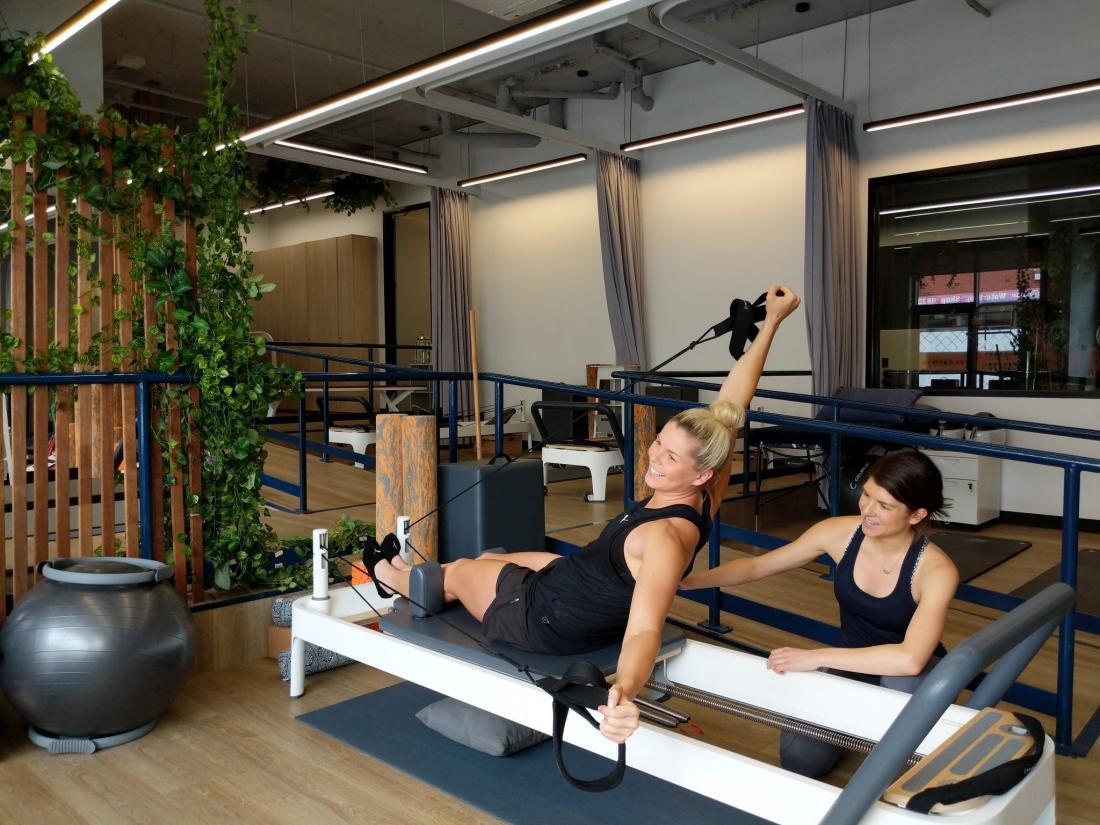
Is Pilates For You In 2021?
So you’re thinking about starting Pilates in the New Year? Fantastic! We field some of the common questions when it comes to starting Pilates with a physiotherapist.
Q) What is this Pilates craze everyone is talking about?
A) Pilates is a low impact method of body conditioning that emerged in the early 20th century. Unbeknown to most, Pilates was developed by a man by the name of Joseph Pilates and his original name for his method was Contrology. In the early days of Contrology, Joseph emphasised the importance of the mind-body connection to combat injury, disease and unhappiness. Fast forward to the present day and the Pilates method has evolved considerably with many medically-trained professionals, including physiotherapists, incorporating Joseph’s Pilates principles into their therapeutic model of care on a daily basis. At Upwell Health Collective, our team integrate current knowledge and evidence from multiple fields into the Pilates method to provide a unique service for injury rehabilitation, physical conditioning and athletic performance.
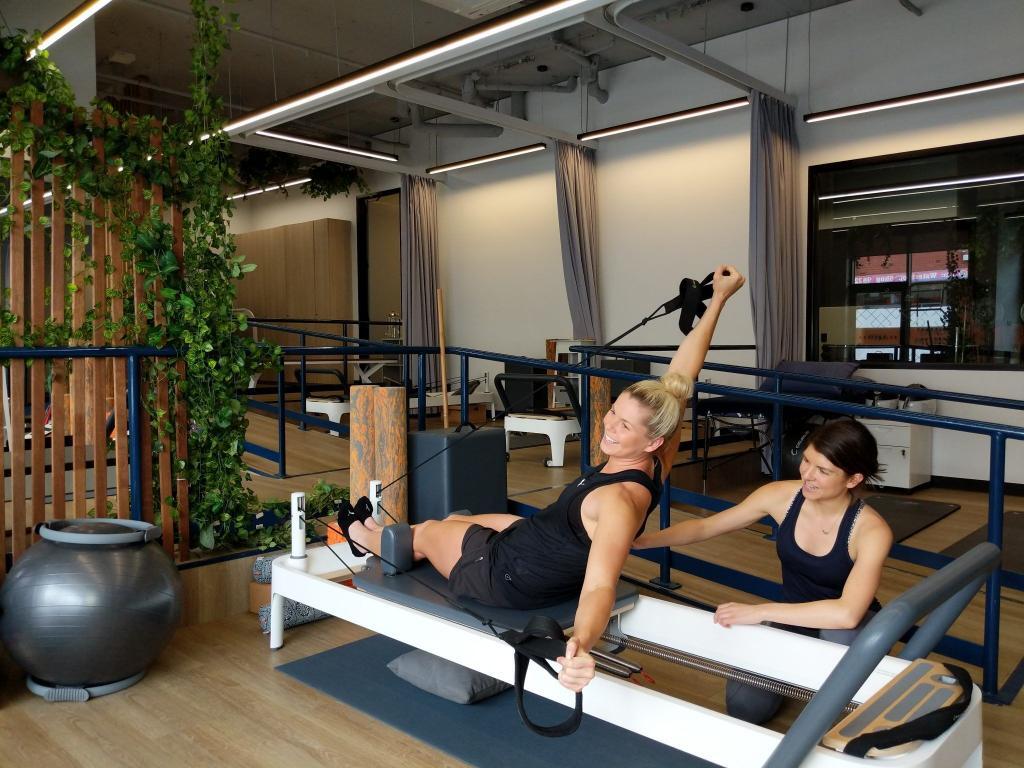
Q) But I thought Pilates was just about core strength?
A) Joseph Pilates was well ahead of his time, referring to Pilates as a ‘whole-person’ form of exercise. It is a common misconception that Joseph focused on isolating specific muscles. As a profession, our understanding of the human body has improved considerably over the past decade and whilst it may be valuable in some instances or conditions to focus solely on one area of the body (usually when you are first starting out), the benefits are even greater when we consider the whole body in action.
Through Pilates you can also:-
- Optimise postural alignment
- Improve muscle strength and control
- Improve and balance muscle tone
- Improve flexibility
- Mobilise joints
- Improve coordination and balance
- Improve body awareness and movement patterns
- Improve breathing efficiency
- Improve overall physical and mental wellbeing
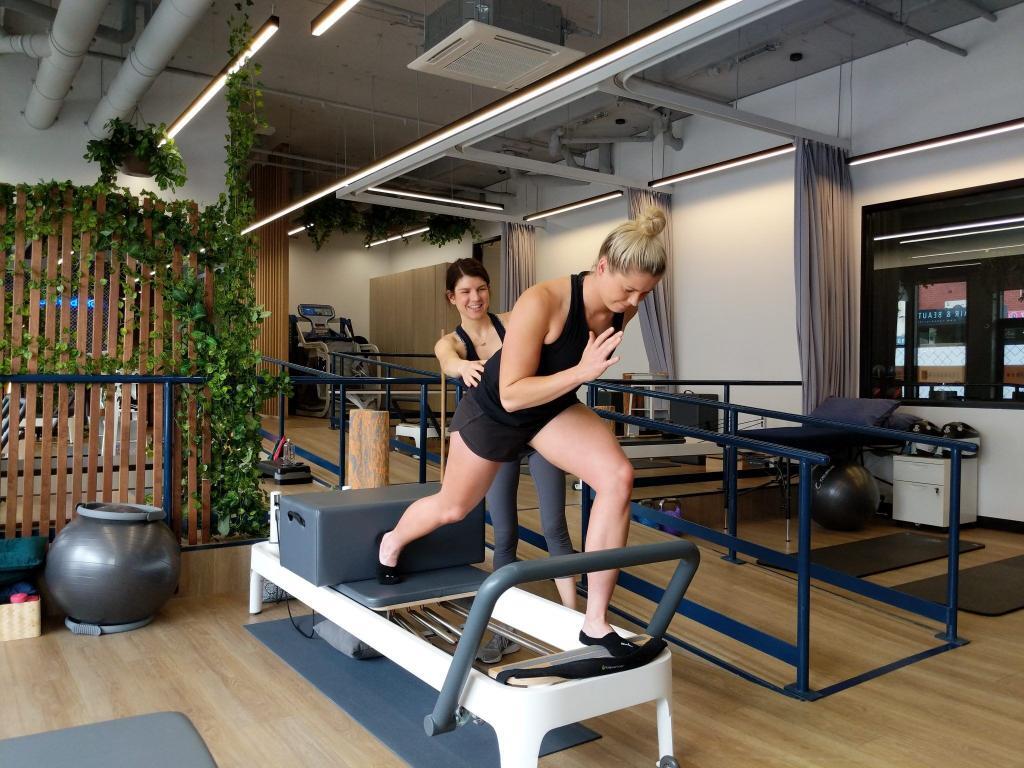
Q) Will I lose weight doing Pilates?
A) Whilst there are some forms of Pilates that include a cardiovascular component, our programs are not specifically designed for weight loss. Having said this, attending Pilates consistently will potentially open new doors for some and allow others to increase their current levels of physical activity.
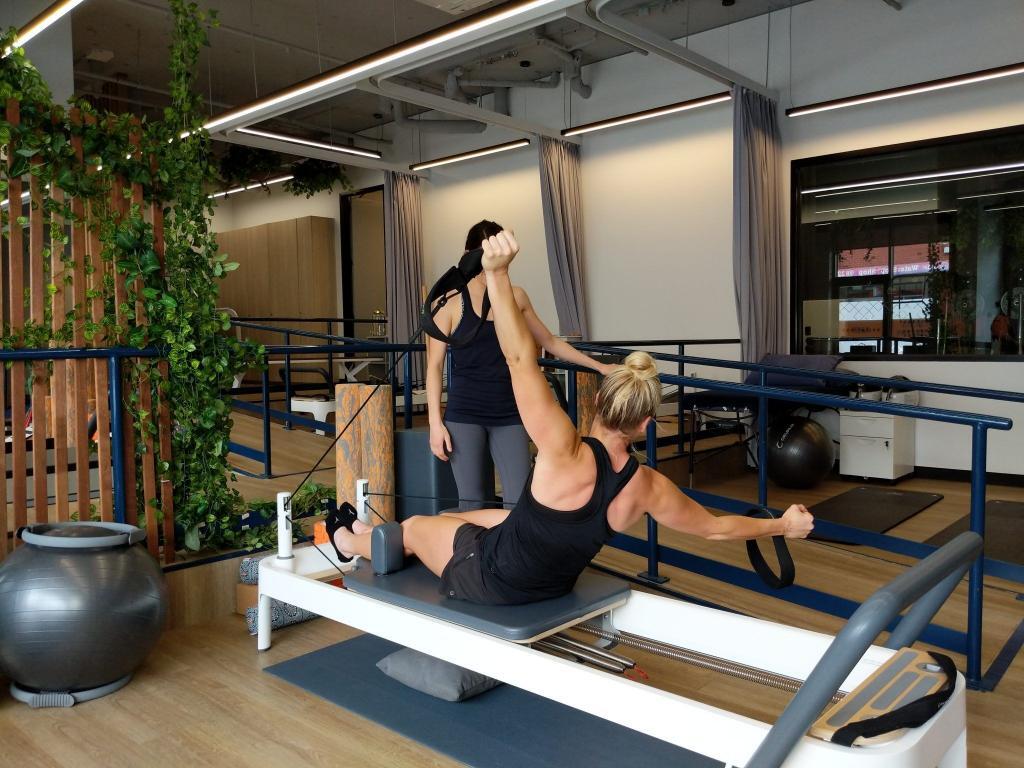
Q) How do I know if I’m suitable for Pilates?
A) That’s easy….because Pilates is for everybody! Regardless of your age, abilities or pre-existing conditions our team can develop a program that will suit your needs. So if you are ready to reconnect with your body on a whole new level then we would love to work with you!

Q) Can I do Pilates if I’m injured?
A) Absolutely! This is the biggest difference when doing Pilates with a physiotherapist. You may or may not be injured when you first come to us and we understand that there may be setbacks along the way. So if something happens and you find yourself sore or with a new injury, our instructors are more than capable of modifying your program on the day so that you can still attend and possibly even get relief.
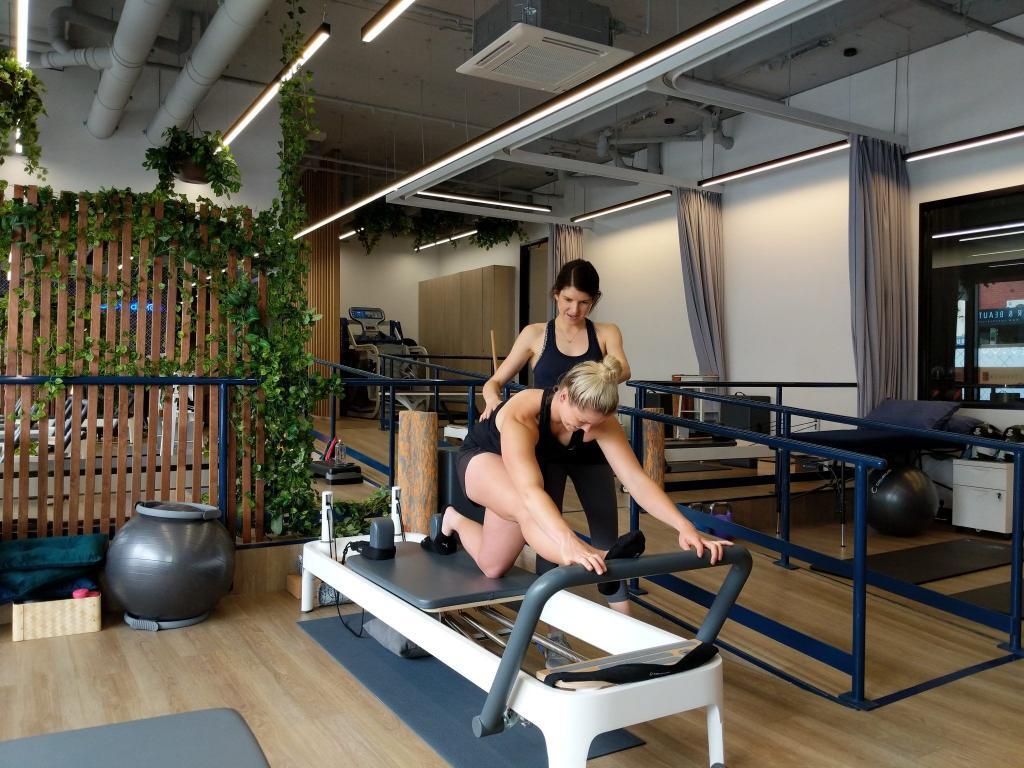
Q) What can I expect during my sessions?
A) When you arrive for your session, you will be welcomed into the studio by your instructor who will lead your individually-designed program. You will notice that everybody in your session is likely to be working on different exercises. Your instructor will teach you an exercise, provide you with feedback and then allow to you practice independently for a short period before moving onto the next exercise. Initially, you may feel as though you are concentrating very hard and leave your sessions more mentally than physically fatigued. Rest assured that this is very normal, and in Pilates you don’t even need to crack a sweat to reap the benefits. From session to session, you can expect your exercises to change as your body and your brain thrive on variety. As you master the repertoire, your exercises will also progress in terms of difficulty but we will always have your goals in front of mind!
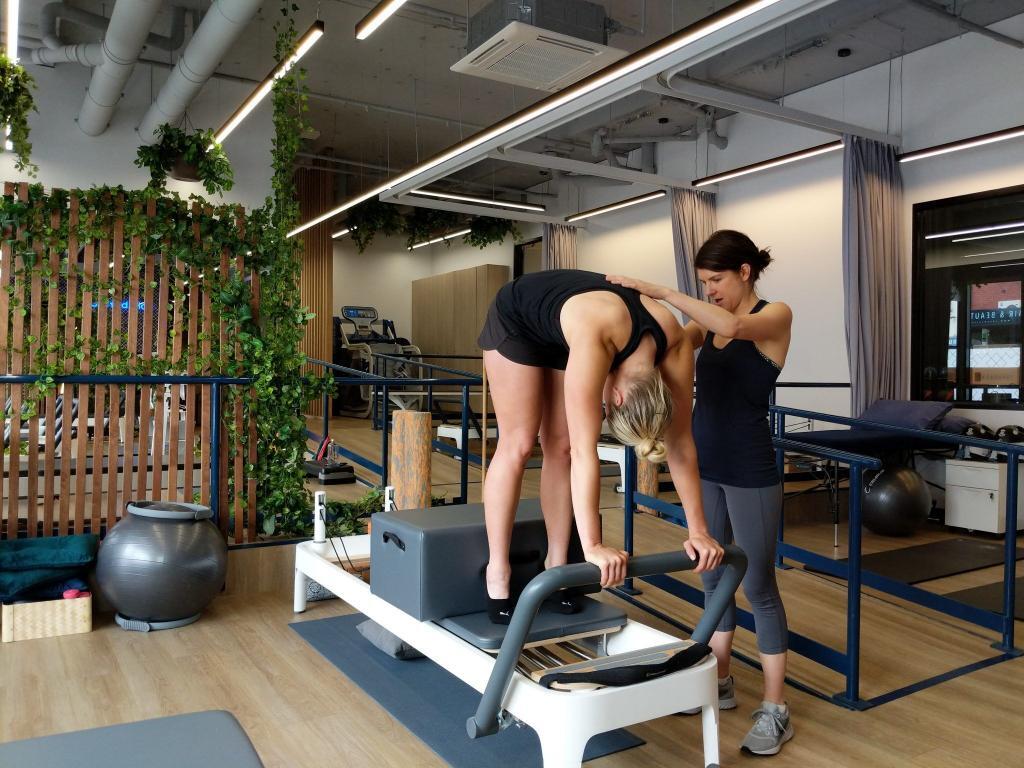
Q) How will I feel after the session?
A) We hope you feel amazing, or at the very least, better than you arrived. Of course this depends on what is happening in your body on that day but some of our clients report feeling lighter, longer and more ‘switched on’. Our aim isn’t to overly fatigue individual muscles (remember the ‘whole-person’ idea) so most people feel good immediately after their session with minimal soreness the next day. For those with longer term goals, our advice is to be prepared to play the long game. The first six weeks of any Pilates program sees you entering a phase of learning and retraining – think of it as re-wiring your brain. But if you are prepared to invest the time into the program and into your health, you will see the benefits!

Q) Is it enough just to do Pilates as my weekly exercise?
A) This really depends on your specific goals which your instructor will discuss with you at the beginning of and throughout your program. Whilst there is no doubt that Pilates will address many of the common issues we see, we find that most people will complement their program with other forms of training. Our Pilates team work closely with our Exercise Physiology team and this is often the next step for those who wish to return to exercise in a gym environment and/or have sporting or athletic goals.
Q&A written by Upwell Physiotherapist and Pilates Practitioner Melissa Williams. Melissa is also a Pilates Polestar educator, meaning she teaches other health professionals how to deliver Pilates for their patients.
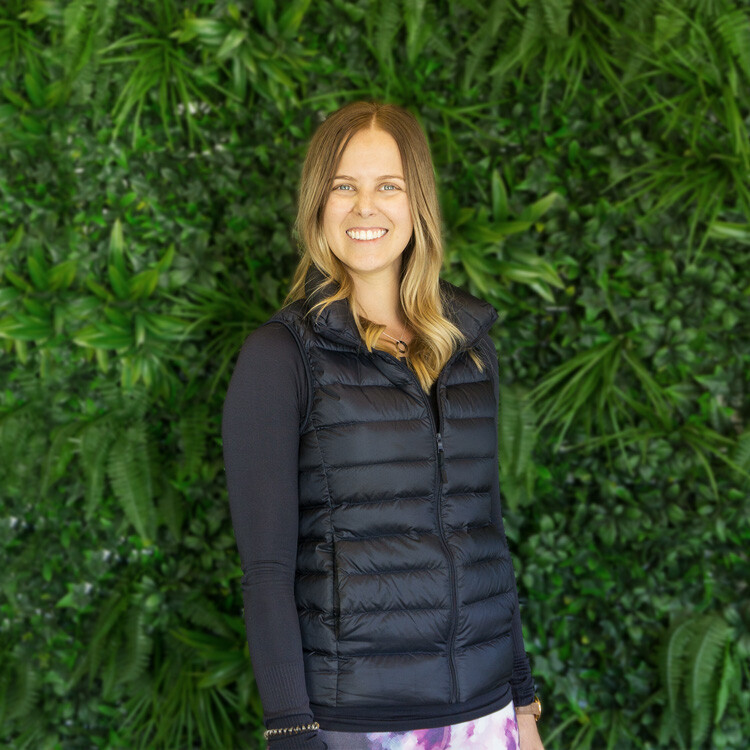
Book your Initial Pilates Assessment (Clinical Exercise) HERE.
